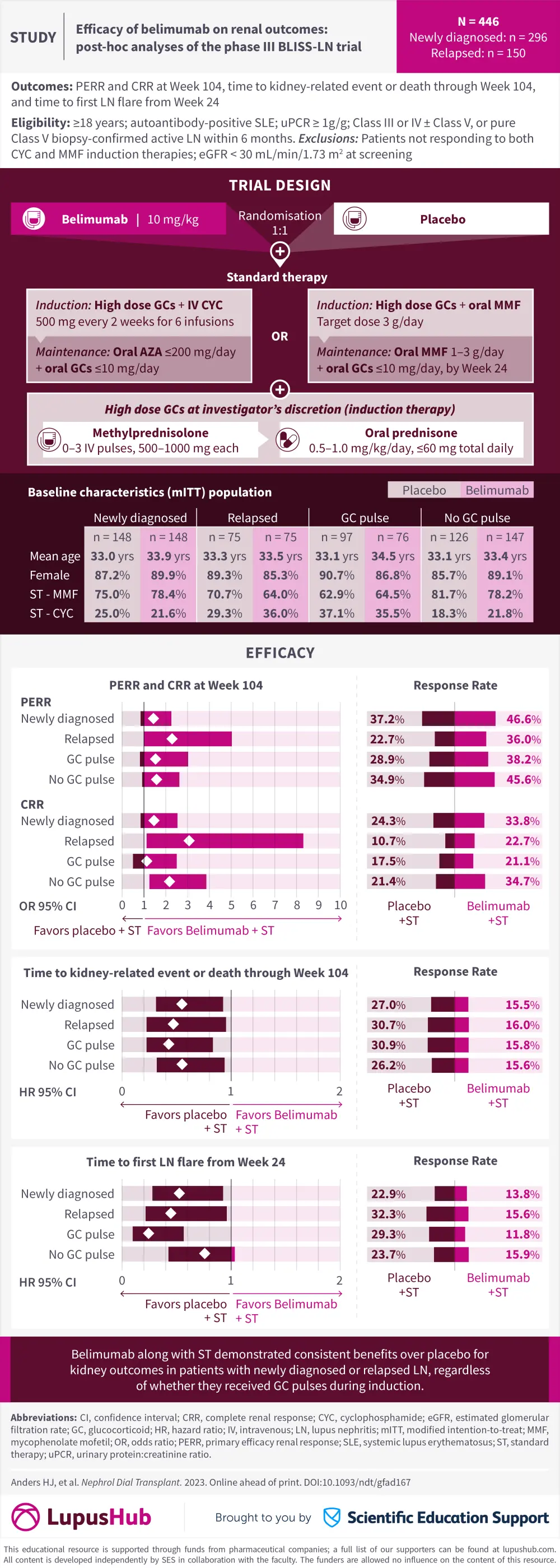All content on this site is intended for healthcare professionals only. By acknowledging this message and accessing the information on this website you are confirming that you are a Healthcare Professional.
The lupus Hub website uses a third-party service provided by Google that dynamically translates web content. Translations are machine generated, so may not be an exact or complete translation, and the lupus Hub cannot guarantee the accuracy of translated content. The lupus and its employees will not be liable for any direct, indirect, or consequential damages (even if foreseeable) resulting from use of the Google Translate feature. For further support with Google Translate, visit Google Translate Help.
The Lupus Hub is an independent medical education platform, supported through a founding grant from AstraZeneca. Funders are allowed no direct influence on our content. The levels of sponsorship listed are reflective of the amount of funding given. View funders.
Now you can support HCPs in making informed decisions for their patients
Your contribution helps us continuously deliver expertly curated content to HCPs worldwide. You will also have the opportunity to make a content suggestion for consideration and receive updates on the impact contributions are making to our content.
Find out more
Create an account and access these new features:
Bookmark content to read later
Select your specific areas of interest
View lupus content recommended for you
Visual abstract | Efficacy of belimumab on renal outcomes: post-hoc analyses from phase III BLISS-LN trial
Do you know... What is the impact of belimumab plus standard therapy on renal outcomes in patients with LN with or without glucocorticoid (GC) induction pulses, compared with placebo?
Lupus nephritis (LN) is a serious complication of systemic lupus erythematosus, affecting approximately 40% of the patients. Furthermore, around 44% of the patients with class IV LN develop end-stage kidney disease within 15 years. Notably, 13%–37% of patients undergoing standard therapy (ST) for LN experience renal flare within 3–5 years, emphasizing the need for novel treatments to preserve kidney function.
The phase III, randomized, double-blind BLISS-LN study (NCT01639339) has demonstrated that the addition of belimumab to ST improves renal outcomes in patients with active LN. However, data on its efficacy at different disease stages or with different induction regimens is limited. Here, we present a visual abstract summarizing post-hoc analyses from the BLISS-LN trial in patients with newly diagnosed or relapsed LN, including those with or without glucocorticoid pulses at induction.1

Please indicate your level of agreement with the following statements:
The content was clear and easy to understand
The content addressed the learning objectives
The content was relevant to my practice
I will change my clinical practice as a result of this content

